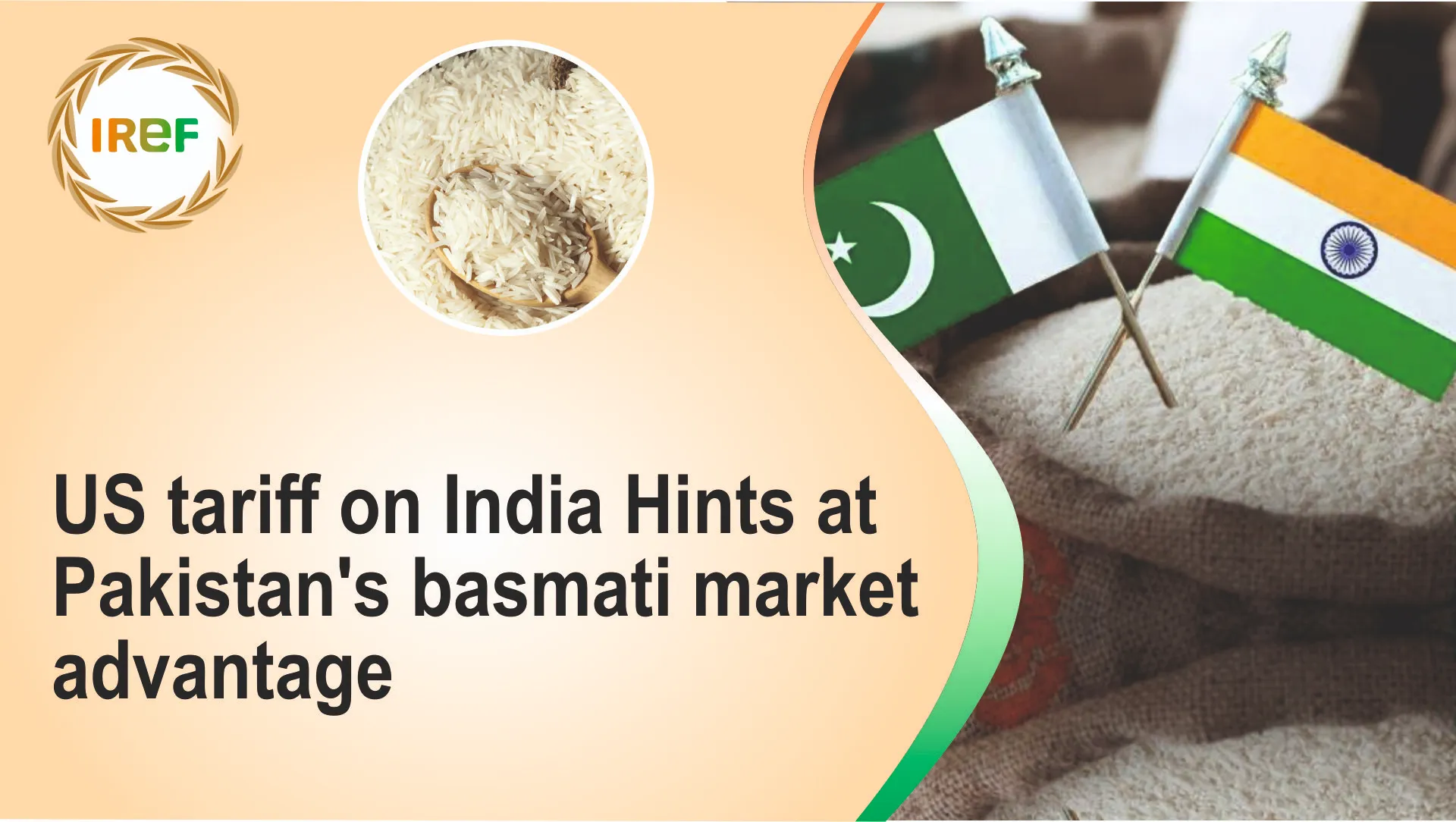US tariff on India Hints at Pakistan’s basmati market advantage

Amidst the ongoing game of US Tariff imposed by Donald Trump on leading countries, including India, there’s a country that is all poised to take the benefit of the scenario. With Donald’s Trump new policy of imposing a 50% import tariff on Indian basmati rice, Pakistan Basmati Rice traders are expecting a significant competitive advantage. Donald Trump raised the rate on Indian imports from an initially planned 26% to 50%, he lowered tariffs on Pakistani imports from 29% to 19%. This shift in tariff rates suspects of severe impact on Indian aromatic grain exports to the US providing a competitive advantage to neighbouring Pakistan.
US Tariff Rate Likely to Affect Punjab
Newly imposed tariff rate is likely to affect Punjab, the highest producer of premium Basmati rice in India, which accounts for 40 per cent of the total production followed by Haryana. US imports approximately 5 lakh metric tonnes (LMT) of basmati rice out of which India exports about 3 LMT approximately worth $350 million and rest 1.8 LMT is exported by Pakistan.
As presently the average price is $1200 per metric tonne (MT) and with the new tariff another $600 per MT will be added thus it will be $1800 and on the other hand Pakistan, which enjoys low tariff of 19 per cent as their basmati will cost only $1450 a difference of $ 350 per MT. This difference, no doubt will affect Indian basmati rice traders shifting US importers to Pakistan from India.
Demand for Indian rice in the US May Disappear
As per the data obtained from credible sources, In the 2023–24 fiscal year, a total of 59.42 lakh metric tonnes (LMT) of basmati rice was exported from the country. Of these exports, basmati rice was mainly sent to five countries: 7 LMT to Iran, 11 LMT to Saudi Arabia, 8 LMT to Iraq, 3 LMT to Yemen, and 3 LMT to the US, with the remainder going to other countries.
According to Agricultural and Processed Food Products Export Development Authority (APEDA) India’s foreign exchange earnings from basmati rice exports were Rs 48,000 crore in 2022, out of which Punjab contributed at least 40 per cent. The new US Tariff policy will significantly reduce India’s price competitiveness which may lead to disappearance of Indian rice in the US market.